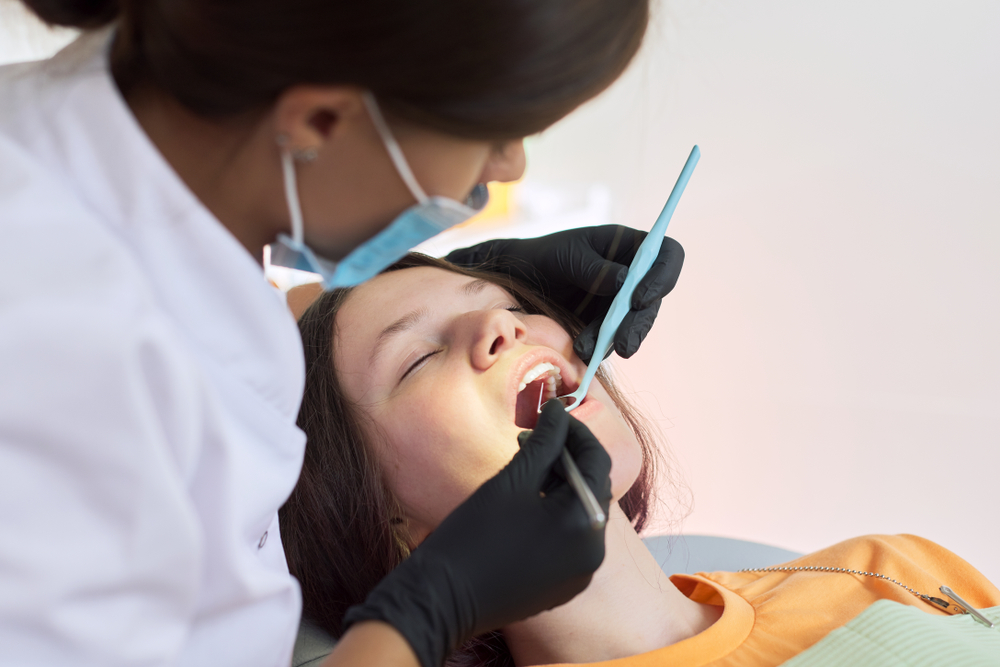Are You Dealing with Failing Dental Implants? Contact Our Oral Surgeon Near You for Help
While dental implants have a success rate of 95%, in some cases, dental implants may fail. Failing dental implants can cause pain, discomfort, and various other complications. Are you suffering from implant failure? Or, maybe you’re unsure if the symptoms you’re experiencing point to dental implant failure. Either way, our Seattle oral surgeon can help.
To get in touch with our oral surgeon near you, contact our downtown Seattle dental practice at 206-343-7500. From Queen Anne to West Seattle, we’re here when you need us.

Common Causes of Dental Implant Failure
Several reasons may cause a failing dental implant:
- Peri-implantitis (Infection): Peri-implantitis is a bacterial infection that affects the gum and bone around the implant, similar to gum disease. If untreated, it can cause bone loss and implant loosening. Poor oral hygiene, smoking, or pre-existing periodontal disease increase the risk.
- Osseointegration Failure: Osseointegration is the process where the implant fuses with the jawbone. If this process fails due to insufficient bone density, excessive force, or improper placement, the implant may become unstable.
- Overloading: Excessive pressure on the implant, such as from teeth grinding (bruxism) or premature loading before full healing, can disrupt integration and lead to failure.
- Medical Conditions: Conditions like uncontrolled diabetes, autoimmune disorders, or osteoporosis can impair healing and bone health, increasing the risk of implant failure.
- Lifestyle Factors: Smoking, heavy alcohol consumption, and poor nutrition can hinder healing and compromise implant success.
Trust Our Seattle Dental Practice
Dual Medical and Dental Expertise
Dr. Thomas Maring’s training in implant dentistry and medicine, and Dr. Susan Maring’s training in periodontal surgery, bring a combination that allows us to address complex cases with precision. Whether you need bone grafting, gum surgery, or dental implant repair, our team has the skills to deliver exceptional results.
Patient-Centered Care
Our patients consistently praise our compassionate, professional approach. From the moment you call to schedule your appointment, you’ll experience respectful, personalized care. We take the time to educate you about your condition and treatment options, ensuring you feel confident and informed.
Are you looking for dental implants in Seattle? Or looking for someone to help with dental implant failure? Contact Maring Surgical today at 206-343-7500. If dental implants fail, trust Maring Surgical to get your smile and oral health back on track.

Symptoms of a Failed Implant
Early detection is critical to addressing implant complications. Common signs of implant failure include:
- Persistent Pain or Discomfort: Mild soreness after surgery is normal, but ongoing or worsening pain may indicate a problem.
- Swelling or Redness: Inflammation around the implant site, especially months after placement, could signal infection.
- Implant Mobility: A loose or wobbly implant is a red flag for osseointegration failure or bone loss.
- Gum Recession: Receding gums around the implant may expose the metal post, increasing infection risk.
- Difficulty Chewing: Pain or instability when biting or chewing can indicate an issue with the implant or surrounding bone.
- Bad Breath or Taste: Persistent bad breath or a metallic taste may point to peri-implantitis or infection.
Experiencing dental implant failure? Don’t fret! Our Seattle oral surgeon can help. Contact our dental office at 206-343-7500.
Risk Factors for Dental Implant Failure
Certain factors can increase the likelihood of implant failure:
- Smoking: Nicotine restricts blood flow, slowing healing and increasing infection risk. Studies show smokers have a 10 to 20% higher implant failure rate.
- Poor Oral Hygiene: Inadequate brushing, flossing, or professional cleanings can lead to plaque buildup and peri-implantitis.
- Insufficient Bone Density: A thin or weak jawbone may not support the implant, especially without bone grafting.
- Uncontrolled Medical Conditions: Diabetes, cancer treatments, or medications like bisphosphonates can impair healing.
- Bruxism: Chronic teeth grinding can place excessive force on implants, leading to mechanical failure.
How Dr. Maring Diagnoses a Failing Implant
If you suspect an issue, Dr. Maring will perform a thorough evaluation, which may include:
- Clinical Examination: Checking for gum inflammation, implant stability, and signs of infection.
- X-Rays or CBCT Scans: Imaging to assess bone loss, implant positioning, and surrounding structures.
- Probing: Measuring gum pocket depth around the implant to detect peri-implantitis.
- Bite Analysis: Evaluating how your teeth align to identify overloading or stress on the implant.
Treatment Options at Maring Surgical for Failing Dental Implants
Non-Surgical Treatments
- Professional Implant Cleaning and Debridement: These procedures remove plaque, bacteria, and deposits from the implant site.
- Antibiotics: Oral antibiotics or antibiotics placed below the gum line are used.
- Mouthguards: We may recommend that your dentist provide patients with bruxism with a mouthguard to reduce pressure on the implant.
Surgical Interventions
- Bone Grafting: To rebuild lost bone and stabilize the implant.
- Implant Removal and Replacement: If the implant is unsalvageable, it may be removed, and the site allowed to heal before placing a new implant in another dental implant procedure.
- Soft Tissue Grafting: To address gum recession and improve aesthetics.
Full Arch Solutions
In cases where multiple implants are failing or if the damage is extensive, we may recommend advanced solutions like All-on-4® dental implants. This technique uses four strategically placed implants to support an entire arch of teeth, often eliminating the need for bone grafting.
Don’t let implant failure discourage you. Our Seattle oral surgeon near you has the expertise needed to treat your failing dental implant and get your smile back. Contact us today at 206-343-7500.
Preventing Dental Implant Failure
Preventing implant failure starts with proper care and maintenance. Here are our top tips:
- Maintain Excellent Oral Hygiene: Brush twice daily with a soft-bristled toothbrush and low-abrasive toothpaste. Floss daily using interdental brushes or floss threaders.
- Use Antibacterial Mouthwash: Rinse with a product like Peridex to reduce bacteria around implants.
- Avoid Harmful Habits: Refrain from chewing hard objects, grinding your teeth, or smoking, as these can damage implants.
- Attend Regular Dental Visits: Biannual checkups allow your dentist to monitor your implants and address issues early.
- Follow Post-Treatment Instructions: After your dental implant surgery, adhere to our guidelines on diet, oral care, and activity restrictions to promote healing.

Frequently Asked Questions
In many cases, yes. Treatments like antibiotics, professional cleanings, or bone grafting can stabilize the implant. However, severe cases may require removal and replacement.
Early-stage peri-implantitis can often be reversed with professional cleanings and improved oral hygiene. Advanced cases may require surgery.
Yes, after addressing the underlying cause and allowing the site to heal, a new dental implant can often be placed successfully.









